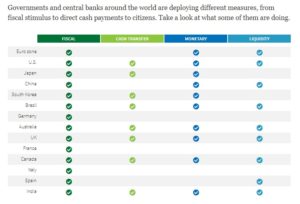Make America Great Again!
When candidate Donald Trump emerged in 2015 with this campaign slogan, one question that so many observers asked was:
When was America Great the first time?
- Was it in 1776, when the country was formed as a protector of the slavery eco-system?
- Was it during the 1870’s when the country rescinded all the racial equality gains by instituting Jim Crow laws?
- Was it in the 1910’s when Women had no voice and no vote despite being more than 50% of the population?
- Was it during the 1940’s when the country saved the planet from Nazism and Fascism but dropped the Atomic Bomb on Japan?
- Was it during the post-WWII years when minorities (Blacks, Hispanics, Native Americans, LGBT, Persons-with-Disabilities, etc.) had to fight, scratch and claw to guarantee their Civil Rights and reasonable accommodations?
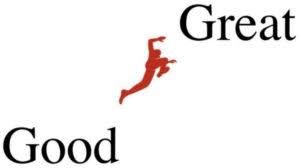 So then, perhaps the Greatness that America had – that Trump reminisced about – was only for a limited scope for people that were:
So then, perhaps the Greatness that America had – that Trump reminisced about – was only for a limited scope for people that were:
White, Male, Straight, Rich, Able-bodied …
There are lessons from this fallacious historic summary that we can learn in the Caribbean.
Was there ever a time that our 30 member-states (individually or collectively) would have been considered as Great societies?
The consensus answer is No! Just the opposite, we have always suffered from Toxic Environments; from discovery to slavery to colonization to American parasite status.
So a campaign slogan for the Caribbean member-states (individually or collectively) could now be:
Make the Caribbean Great (Anew)
This is the completion of this Teaching Series from the movement behind the 2013 book Go Lean…Caribbean, related to Toxic Environments. The book asserts that with the adoption of certain community ethos and the execution of certain strategies, tactics and implementation, our communities can reach a destination of Greatness.
Every month, the Go Lean movement presents a Teaching Series to address issues germane to Caribbean life and culture. For this month of September 2020, we were looking at the actuality of persecuted minorities and stagnated economies in the homeland. Our Toxic Environment have curtailed the opportunities for many people to live, work and play at home; so they have been compelled to seek refuge abroad. This is entry 6-of-6; it presents the thesis that “without attempts towards greatness” our neighborhoods and workplaces just become more-and-more Toxic. There is no standing still in this fast moving world. There is only one choice, do the heavy-lifting to Make the Caribbean Great or watch the eventual abandonment of our society – drip by drip.
Consider here, the full catalog of the series this month:
- Toxic Environment: Ready for Football – Washington “Redskins”
- Toxic Environment: Homophobia – The problem is the Hate, not the Fear – Encore
- Toxic Environment: Opposite of Diversity & Inclusion
- Toxic Environment: Lessons from Yugoslavia
- Toxic Environment: Ease of Doing Business
- Toxic Environment: Make the Caribbean Great (Anew) – Encore
 The Go Lean book, serving as a roadmap for the introduction of the Caribbean Union Trade Federation (CU), asserts that Caribbean stakeholders must do the heavy-lifting to remediate our Toxic Environments, and them keep pushing forward to foster a Great Society. The purpose of the Go Lean roadmap is to optimize the economic, security and governing engines of society. The end result must be that we retain people in-country and maybe even entice the Diaspora to return. The purpose of these past entries in this month’s Teaching Series was to reinforce the foundation of Caribbean society. We must reform and transform. Yes, we can!
The Go Lean book, serving as a roadmap for the introduction of the Caribbean Union Trade Federation (CU), asserts that Caribbean stakeholders must do the heavy-lifting to remediate our Toxic Environments, and them keep pushing forward to foster a Great Society. The purpose of the Go Lean roadmap is to optimize the economic, security and governing engines of society. The end result must be that we retain people in-country and maybe even entice the Diaspora to return. The purpose of these past entries in this month’s Teaching Series was to reinforce the foundation of Caribbean society. We must reform and transform. Yes, we can!
How do we Make the Caribbean Great?
No seriously!
How? Not just talking the talk – the campaign slogan – but walking the walk. Is this destination of Greatness really conceivable, believable and achievable?
We have addressed this question before and answered it accordingly.
There is a formula for moving from “Good to Great”.
This subject was thoroughly addressed in a previous Go Lean commentary from March 2, 2016; it analyzed the book by Jim Collins: Good to Great: Why Some Companies Make the Leap … and Others Don’t.
Since that 2016 date, we have published a few additional commentaries that presented strategies, tactics and implementations to pursue greatness, or chronicled goodness. Consider this sample list of previous blog-commentaries:
| https://goleancaribbean.com/blog/?p=20551 | Naomi Osaka: A Good Sport – On and Off the Court |
| https://goleancaribbean.com/blog/?p=20371 | Success – and a Great Society – looks like New Zealand |
| https://goleancaribbean.com/blog/?p=20363 | A Good Pandemic Playbook: Bubble Strategy |
| https://goleancaribbean.com/blog/?p=20203 | Pluralism is the goal for a Great Caribbean Society |
| https://goleancaribbean.com/blog/?p=20180 | A Good Start for Reforming Black Image: Corporate Reboots |
| https://goleancaribbean.com/blog/?p=19835 | Good Leadership: Example – “Leader of the Free World”? |
| https://goleancaribbean.com/blog/?p=19831 | Good Leadership: Next Generation of ‘Agile’ Project Delivery |
| https://goleancaribbean.com/blog/?p=18749 | A Great Place to Work – Global Auto Conglomerate: Mercedes-Benz |
| https://goleancaribbean.com/blog/?p=16002 | Good Governance: Good Corporate Compliance; JPMChase Model |
| https://goleancaribbean.com/blog/?p=15479 | ‘Lean Is’ as ‘Lean Does’ – Good Project Management |
| https://goleancaribbean.com/blog/?p=11386 | Building Better Cities – Reform the cities; then reform the country |
It is only apropos to Encore the original blog-commentary from March 2016; see that here now:
——————-
Go Lean Commentary – Going from ‘Good to Great’
The Caribbean is arguably the greatest address on the planet.
So declares the book Go Lean…Caribbean. This not only refers to terrain, but also culture (music, food, festivals, fun, etc.) and hospitality. Despite these arguable facts, the societal engines in the Caribbean (economy, security, and governance) are NOT great; in some cases, they may not even be considered “good”, as we do feature a few Failed-States in the region.
For the sake of this commentary, we give every Caribbean member-state a scholarship and assume they are “good”. Now how do we go from “Good to Great”?
The book Go Lean…Caribbean represents a quest to make the Caribbean a Great place to live, work and play. But there is actually a formula to making a society (or company/organization) great, as opposed to just being good. Below is the book review and accompanying VIDEO of the landmark publication by writer – see Appendix – and management consultant Jim Collins:
Book Title: Good to Great: Why Some Companies Make the Leap … and Others Don’t
Executive Summary
Jim Collins, already established as one of the most influential management consultants, further established his credibility with the wildly popular Good to Great: Why Some Companies Make the Leap…and Others Don’t, originally published in 2001. The book went on to be one of the bestsellers in the genre, and it is now widely regarded as a modern classic of management theory.
Collins takes up a daunting challenge in the book: identifying and evaluating the factors and variables that allow a small fraction of companies to make the transition from merely good to truly great. ‘Great,’ an admittedly subjective term, is operationally defined according to a number of metrics, including, specifically, financial performance that exceeded the market average by several orders of magnitude over a sustained period of time. Using these criteria, Collins and his research team exhaustively catalogued the business literature, identifying a handful of companies that fulfilled their predetermined criteria for greatness. Then, the defining characteristics that differentiated these ‘great’ firms from their competitors were quantified and analyzed.
The resulting data are presented in Good to Great in compelling detail. Over the course of 9 chapters, Collins addresses a number of management, personnel, and operational practices, behaviors, and attitudes that are both conducive and antithetical to the good-to-great transition. One overarching theme that links together virtually all of Collins’ arguments is the need to define a narrowly focused objective and field of competency and then focus all of the company’s resources toward that area of strength. Repeatedly, Collins warns that straying too far from a company’s established strengths is inimical to the attainment of greatness. Finally, Collins links the findings of Good to Great to the conclusions he reached in his previous book, Built to Last, which focused on the factors that define companies that survive in the long-term, meshing both sets of results into an overarching framework for enduring success.
Chapter Summaries
Chapter 1: Good is the Enemy of Great
The first chapter of the book lays out the criteria that Collins and his research team used in selecting the companies that served as the basis of the meta-analysis that provided the findings set forth in the book. The most important factor in the selection process was a period of growth and sustained success that far outpaced the market or industry average. Based on the stated criteria, the companies that were selected for inclusion were Abbott, Fannie Mae, Circuit City, Gillette, Kimberly-Clark, Kroger, Nucor, Philip Morris, Pitney Bowes, Walgreens, and Wells Fargo.
Collins also offers a few of the most significant findings gleaned from the study. Of particular note are the many indications that factors such as CEO compensation, technology, mergers and acquisitions, and change management initiatives played relatively minor roles in fostering the Good to Great process. Instead, Collins found that successes in three main areas, which he terms disciplined people, disciplined thought, and disciplined action, were likely the most significant factors in determining a company’s ability to achieve greatness.
Chapter 2: Level 5 Leadership
In this chapter, Collins begins the process of identifying and further explicating the unique factors and variables that differentiate good and great companies. One of the most significant differences, he asserts, is the quality and nature of leadership in the firm. Collins goes on to identify “Level 5 leadership” as a common characteristic of the great companies assessed in the study. This type of leadership forms the top level of a 5-level hierarchy that ranges from merely competent supervision to strategic executive decision-making.
By further studying the behaviors and attitudes of so-called Level 5 leaders, Collins found that many of those classified in this group displayed an unusual mix of intense determination and profound humility. These leaders often have a long-term personal sense of investment in the company and its success, often cultivated through a career-spanning climb up the company’s ranks. The personal ego and individual financial gain are not as important as the long-term benefit of the team and the company to true Level 5 leaders. As such, Collins asserts that the much-touted trend of bringing in a celebrity CEO to turn around a flailing firm is usually not conducive to fostering the transition from Good to Great.
Chapter 3: First Who, Then What
The next factor that Collins identifies as part of the Good to Great process is the nature of the leadership team. Specifically, Collins advances the concept that the process of securing high-quality, high-talent individuals with Level 5 leadership abilities must be undertaken before an overarching strategy can be developed. With the right people in the right positions, Collins contends that many of the management problems that plague companies and sap valuable resources will automatically dissipate. As such, he argues, firms seeking to make the Good to Great transition may find it worthwhile to expend extra energy and time on personnel searches and decision-making.
Collins also underscores the importance of maintaining rigorousness in all personnel decisions. He recommends moving potentially failing employees and managers to new positions, but not hesitating to remove personnel who are not actively contributing. He also recommends that hiring should be delayed until an absolutely suitable candidate has been identified. Hewing to both of these guidelines, Collins claims, will likely save time, effort, and resources in the long-term.
Chapter 4: Confront the Brutal Facts (Yet Never Lose Faith)
Another key element of some companies’ unique ability to make the transition from Good to Great is the willingness to identify and assess defining facts in the company and in the larger business environment. In today’s market, trends in consumer preferences are constantly changing, and the inability to keep apace with these changes often results in company failure. Using the example of an extended comparative analysis of Kroger and A & P, Collins observes that Kroger recognized the trend towards modernization in the grocery industry and adjusted its business model accordingly, although doing so required a complete transformation of the company and its stores. A & P, on the other hand, resisted large-scale change, and thus guaranteed its own demise.
Collins outlines a four-step process to promote awareness of emerging trends and potential problems: 1) Lead with questions, not answers; 2) Engage in dialogue and debate, not coercion; 3) Conduct autopsies without blame; and 4) Build red flag mechanisms that turn information into information that cannot be ignored.
Chapter 5: The Hedgehog Concept (Simplicity Within the Three Circles)
In this chapter, Collins uses the metaphor of the hedgehog to illustrate the seemingly contradictory principle that simplicity can sometimes lead to greatness. When confronted by predators, the hedgehog’s simple but surprisingly effective response is to roll up into a ball. While other predators, such as the fox, may be impressively clever, few can devise a strategy that is effective enough to overcome the hedgehog’s simple, repetitive response.
Similarly, Collins asserts, the way to make the transformation from Good to Great is often not doing many things well, but instead, doing one thing better than anyone else in the world. It may take time to identify the single function that will be a particular firm’s “hedgehog concept,” but those who do successfully identify it are often rewarded with singular success. In order to help expedite this process, Collins suggests using the following three criteria: 1) Determine what you can be best in the world at and what you cannot be best in the world at; 2) Determine what drives your economic engine; and 3) Determine what you are deeply passionate about.
Chapter 6: A Culture of Discipline
Another defining characteristic of the companies that Collins defined as great in his study was an overarching organizational culture of discipline. He is quick to point out that a culture of discipline is not to be confused with a strict authoritarian environment; instead, Collins is referring to an organization in which each manager and staff member is driven by an unrelenting inner sense of determination. In this type of organization, each individual functions as an entrepreneur, with a deeply rooted personal investment in both their own work and the company’s success.
Although this discipline will manifest itself in a high standard of quality in the work that is produced by managers and employees alike, its most significant outcome will be an almost fanatical devotion to the objectives outlined in the “hedgehog concept” exercises. Disciplined workers will be better equipped to hew to these goals with a single-minded intensity that, according to Collins, will foster the transformation from merely Good to Great. In addition, the author asserts, it is important that within this overarching culture of discipline, every team member is afforded the degree of personal empowerment and latitude that is necessary to ensure that they will be able to go to unheard-of extremes to bring the firm’s envisioned objectives into existence.
Chapter 7: Technology Accelerators
Today, many businesses have come to depend upon technology to increase efficiency, reduce overhead, and maximize competitive advantage. However, Collins cautions that technology should not be regarded as a potential panacea for all that ails a company. The folly of this kind of thinking was revealed in the aftermath of the crash of the tech bubble in the early 2000s. The market correction threw into sharp relief the differences between sustainable uses of the Internet to extend established businesses and ill-planned, unviable online start-ups.
Collins contends that the good-to-great companies approach the prospect of new and emerging technologies with the same prudence and careful deliberation that characterizes all of their other business decisions. Further, these companies tend to apply technology in a manner that is reflective of their “hedgehog concepts” — typically by selecting and focusing solely upon the development of a few technologies that are fundamentally compatible with their established strengths and objectives. Collins characterizes the ideal approach to technology with the following cycle: “Pause — Think — Crawl — Walk — Run.”
Chapter 8: The Flywheel and the Doom Loop
In this chapter, Collins describes two cycles that demonstrate the way that business decisions tend to accumulate incrementally in either an advantageous or a disadvantageous manner. Both, the author emphasizes, accrue over time. Despite the popular misperception that business success or failure often occurs suddenly, Collins asserts that it more typically occurs over the course of years, and that both only transpire after sufficient positive or negative momentum has been accrued.
Collins describes the advantageous business cycle that, in some cases, can foster the transition from Good to Great as “the flywheel effect.” By making decisions and taking actions that reinforce and affirm the company’s “hedgehog” competencies, executives initiate positive momentum. This, in turn, results in the accumulation of tangible positive outcomes, which serve to energize and earn the investment and loyalty of the staff. This revitalization of the team serves to further build momentum. If the cycle continues to repeat in this manner, the transition from Good to Great is likely to transpire. In contrast, the doom loop is characterized by reactive decision-making, an overextension into too many diverse areas of concentration, following short-lived trends, frequent changes in leadership and personnel, loss of morale, and disappointing results.
Chapter 9: From Good to Great to Built to Last
In the concluding chapter of Good to Great, Collins makes a connection between this book and his previous work, Built to Last, which represented the findings of a six-year study into the factors that determined whether a new company would survive in the long-term. First and foremost, Collins contends that companies need a set of core values in order to achieve the kind of long-term, sustainable success that may lead to greatness. Companies need to exist for a higher purpose than mere profit generation in order to transcend the category of merely good. According to Collins, this purpose does not have to be specific — even if the shared values that compel the company toward success are as open-ended as being the best at what they do and achieving excellence consistently, that may be sufficient as long as the team members are equally dedicated to the same set of values.
Although many of the conclusions of both of the books overlap, Collins notes that Good to Great should not be seen as the follow-up to Built to Last, which focuses on sustaining success in the long-term. Instead, Good to Great actually functions as the prequel to Built to Last. First, a company should focus on developing the foundation that is necessary to work toward greatness. Then, they can begin to apply the principles of longevity that are set forth in Built to Last.
Source: Wikipedia Online Encyclopedia’s Wiki-Summaries – Retrieved 03/02/2016 –
http://www.wikisummaries.org/Good_to_Great:_Why_Some_Companies_Make_the_Leap…_and Others_Don’t————————
VIDEO: Video Review for ‘Good To Great by Jim Collins’ – https://youtu.be/Yk7bzZjOXaM
Published on Aug 16, 2013 – Employee Engagement with http://callibrain.com
This is video review for the book Good To Great by Jim Collins, produced by Callibrain, employee engagement through social collaboration and execution discipline.
To buy the book click here – http://www.amazon.com/Good-Great-Comp…
Category: Education
License: Standard YouTube License
 The talk of societal greatness is en vogue right now. This is election season in the United States and one candidate for President, Donald J. Trump, pledges to “Make America Great Again”; see photo here.
The talk of societal greatness is en vogue right now. This is election season in the United States and one candidate for President, Donald J. Trump, pledges to “Make America Great Again”; see photo here.
Greatness also aligns with other empowerment efforts, like the advocacy championed by the Great Place to Work® Institute.
The book Go Lean … Caribbean stresses the need to create a great society of all of the Caribbean. It serves as a roadmap for the introduction and implementation for the technocratic Caribbean Union Trade Federation (CU). As a federation or federal government, there will be the need to pursue greatness organizationally to benefit all stakeholders (residents, Diaspora, visitors, trading partners, etc.). There is also the need to employ and empower a Civil Service workforce; this labor pool is projected to be only 30,000 people, thusly embracing lean (or agile) delivery methodologies. So all the references in the foregoing regarding organization, enterprise, company and/or firm could apply directly and indirectly to the CU Trade Federation.
Yet, these federal civil servants are not the only focus of the Go Lean/CU roadmap. The prime directives of this roadmap covers these 3 focus areas:
- Optimization of the economic engines in order to grow the regional economy to $800 Billion & create 2.2 million new jobs.
- Establishment of a security apparatus to protect the resultant economic engines.
- Improve Caribbean governance to support these engines.
With the success of this roadmap, the Caribbean region will be enabled to go from Good to Great! With confidence now, we can truly declare that “A Change Is Gonna Come“.
But any change must be permanent! The Go Lean book declares that for permanent change to take place, there must first be an adoption of new community ethos, the national spirit that drives the character and identity of its people. The roadmap was constructed with the following community ethos in mind, plus the execution of strategies, tactics, implementation and advocacies to move from Good to Great. The following is a sample of these specific details from the book:
| Community Ethos – Deferred Gratification | Page 21 |
| Community Ethos – Economic Principles – Economic Systems Influence Individual Choices | Page 21 |
| Community Ethos – Economic Principles – The Consequences of Choices Lie in the Future | Page 21 |
| Community Ethos – Governing Principles – Lean Operations | Page 24 |
| Community Ethos – Ways to Impact the Future | Page 26 |
| Community Ethos – Ways to Foster Genius | Page 27 |
| Community Ethos – Ways to Help Entrepreneurship – Incubators | Page 28 |
| Community Ethos – Ways to Impact Research & Development | Page 30 |
| Community Ethos – Ways to Improve Sharing | Page 35 |
| Community Ethos – Ways to Promote Happiness | Page 36 |
| Community Ethos – Ways to Impact the Greater Good | Page 37 |
| Anecdote – LCD versus an Entrepreneurial Ethos | Page 39 |
| Strategy – Mission – Build and foster local economic engines | Page 45 |
| Tactical – Confederating a Permanent Union | Page 63 |
| Tactical – Separation of Powers: Federal Administration versus Member-States Governance | Page 71 |
| Implementation – Ways to Pay for Change | Page 101 |
| Planning – Ways to Make the Caribbean Better – Live, Work and Play Empowerments | Page 131 |
| Advocacy – Ways to Grow the Economy | Page 151 |
| Advocacy – Ways to Create Jobs | Page 152 |
| Advocacy – Ways to Improve Governance in the Caribbean Region | Page 168 |
| Advocacy – Ways to Better Manage the Social Contract | Page 170 |
| Advocacy – Ways to Improve Leadership | Page 171 |
| Advocacy – Ways to Manage Federal Civil Service | Page 173 |
| Advocacy – Ways to Improve Communications – Improve the Messaging | Page 186 |
| Advocacy – Ways Impact Main Street | Page 201 |
| Advocacy – Ways to Preserve Caribbean Heritage | Page 218 |
| Advocacy – Ways to Protect Human Rights | Page 220 |
| Advocacy – Ways to Help the Middle Class | Page 223 |
| Advocacy – Ways to Improve Urban Living | Page 234 |
| Advocacy – Ways to Improve Rural Living | Page 235 |
The Go Lean/CU roadmap identifies, qualifies and proposes the establishment of technocratic administration throughout the region to impact all societal engines.
Previously, Go Lean blogs commented on developments – in the public sector and also with industrial and entrepreneurial endeavors – showing the success of aspiring to be better and do better. Consider this sample:
Now is the time for all Caribbean stakeholders, employees in the public and private sectors, to lean-in to this regional solution – the Go Lean roadmap – for the Caribbean to go from Good to Great. While a good homeland may seem satisfactory, we now see that satisfactory is not good enough – we lose too many of our citizens as they flee to foreign shores for refuge.
The desired destination is not “good”, but rather “great”. We want to make the Caribbean a Great place to live, work and play. 🙂
Download the book Go Lean … Caribbean – now!
———-
Appendix – Bibliography of Jim Collins
- 1994: Built to Last: Successful Habits of Visionary Companies, by James C. Collins and Jerry I. Porras
- 1995: Beyond Entrepreneurship: Turning Your Business into an Enduring Great Company, by James C. Collins and William C. Lazier
- 2001: Good to Great: Why Some Companies Make the Leap … And Others Don’t, by James C. Collins
- 2005: Good to Great and the Social Sectors, by James C. Collins
- 2009: How the Mighty Fall: And Why Some Companies Never Give In, by James C. Collins[7]
- 2011: Great By Choice, by James C. Collins and Morten T. Hansen
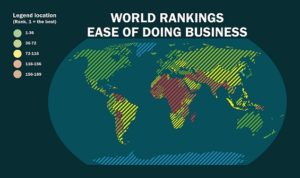 Peace and Prosperity …
Peace and Prosperity … We do not want Toxic Environments … anymore.
We do not want Toxic Environments … anymore. Doing Business 2020, a World Bank Group flagship publication, is the 17th in a series of annual studies measuring the regulations that enhance business activity and those that constrain it. Doing Business presents quantitative indicators on business regulations and the protection of property rights that can be compared across 190 economies—from Afghanistan to Zimbabwe—and over time.
Doing Business 2020, a World Bank Group flagship publication, is the 17th in a series of annual studies measuring the regulations that enhance business activity and those that constrain it. Doing Business presents quantitative indicators on business regulations and the protection of property rights that can be compared across 190 economies—from Afghanistan to Zimbabwe—and over time.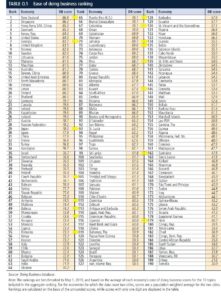

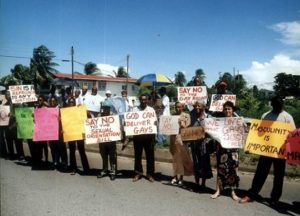
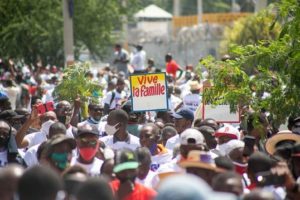
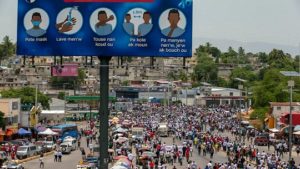
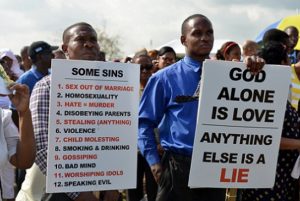
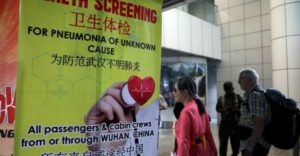
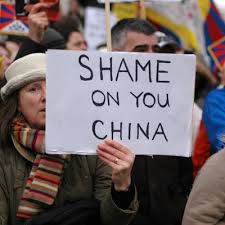
 The actuality of Intolerance is the opposite of the qualities a pluralistic society like the Caribbean needs to develop. We have a new found economic engine that we can now exploit:
The actuality of Intolerance is the opposite of the qualities a pluralistic society like the Caribbean needs to develop. We have a new found economic engine that we can now exploit: 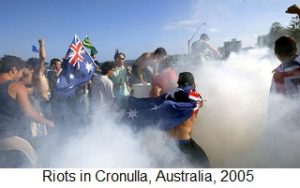

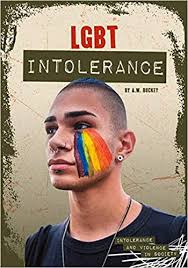

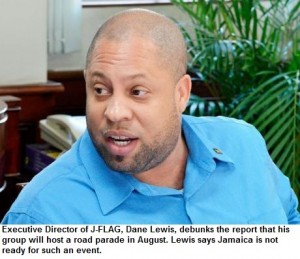



 24 “Anyone who listens to my teaching and follows it is wise, like a person who builds a house on solid rock. 25 Though the rain comes in torrents and the floodwaters rise and the winds beat against that house, it won’t collapse because it is built on bedrock. 26 But anyone who hears my teaching and doesn’t obey it is foolish, like a person who builds a house on sand. 27 When the rains and floods come and the winds beat against that house, it will collapse with a mighty crash.” – The Bible re: Building on a Solid Foundation – Matthew 7:24-27 –
24 “Anyone who listens to my teaching and follows it is wise, like a person who builds a house on solid rock. 25 Though the rain comes in torrents and the floodwaters rise and the winds beat against that house, it won’t collapse because it is built on bedrock. 26 But anyone who hears my teaching and doesn’t obey it is foolish, like a person who builds a house on sand. 27 When the rains and floods come and the winds beat against that house, it will collapse with a mighty crash.” – The Bible re: Building on a Solid Foundation – Matthew 7:24-27 – 
 When the
When the  The
The  [Thoughts-feeling-speech-action] is usually the order and process for change. Change doesn’t just start with Action; a lot more goes into it. It can be likened to a factory process; there is input and there is output. While Action is the output, “Thoughts, Feelings and Speech” qualify as input.
[Thoughts-feeling-speech-action] is usually the order and process for change. Change doesn’t just start with Action; a lot more goes into it. It can be likened to a factory process; there is input and there is output. While Action is the output, “Thoughts, Feelings and Speech” qualify as input. The Washington Football Team are a professional
The Washington Football Team are a professional 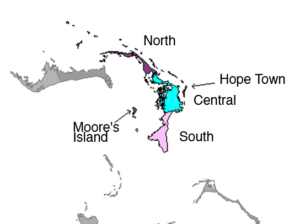 There is a parallel situation today in the Caribbean, in the Northern Bahamas community of Abaco in particular. They have battles on two fronts: A hurricane and a pandemic.
There is a parallel situation today in the Caribbean, in the Northern Bahamas community of Abaco in particular. They have battles on two fronts: A hurricane and a pandemic.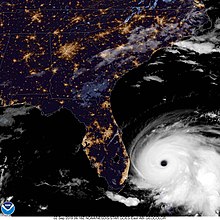
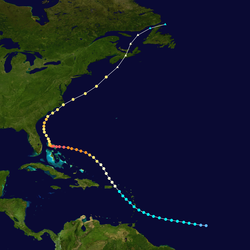
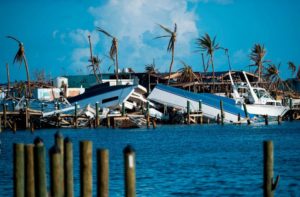 It’s been a little over a year since the prolonged and record-breaking
It’s been a little over a year since the prolonged and record-breaking 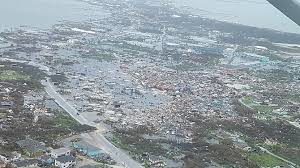 Respected for their storytelling techniques, industry contacts, and ability to spread awareness, Brown and his directorial partner Bobby Pura were hired by
Respected for their storytelling techniques, industry contacts, and ability to spread awareness, Brown and his directorial partner Bobby Pura were hired by 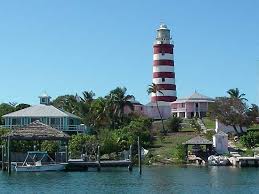 NASSAU, BAHAMAS — Central and South Abaco MP James Albury said because the construction industry represents a major hotspot for COVID-19, Abaco is in a “precarious situation” as reconstruction forges on.
NASSAU, BAHAMAS — Central and South Abaco MP James Albury said because the construction industry represents a major hotspot for COVID-19, Abaco is in a “precarious situation” as reconstruction forges on. In the two weeks prior, 35 cases were recorded.
In the two weeks prior, 35 cases were recorded.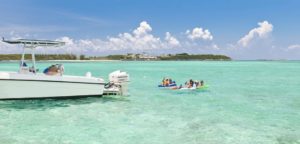 The Abaco chain of islands are a beautiful part of the Bahamas archipelago – the natural beauty flourishes. The Bahamas has been rocked by the pandemic but the country was in crisis even before COVID-19; this was due to structural deficiencies that were exacerbated by Agents of Change like Climate Change, globalization, technology and an Aging Diaspora. So the cupboards are now bare; this makes relief and refuge from these recent crises (COVID-19 and Dorian) untenable. Crisis within a crisis; failure on top of failure.
The Abaco chain of islands are a beautiful part of the Bahamas archipelago – the natural beauty flourishes. The Bahamas has been rocked by the pandemic but the country was in crisis even before COVID-19; this was due to structural deficiencies that were exacerbated by Agents of Change like Climate Change, globalization, technology and an Aging Diaspora. So the cupboards are now bare; this makes relief and refuge from these recent crises (COVID-19 and Dorian) untenable. Crisis within a crisis; failure on top of failure.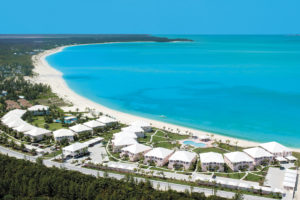 This is the urging right now; we need more than a string; we need to make the “rope” of our society stronger and better. We must … confederate, collaborate, collude, consolidate and convene:
This is the urging right now; we need more than a string; we need to make the “rope” of our society stronger and better. We must … confederate, collaborate, collude, consolidate and convene: Keeping up with the Joneses.
Keeping up with the Joneses. New Zealand, a modern small island nation, has become an emblematic champion of proper prevention and response to the
New Zealand, a modern small island nation, has become an emblematic champion of proper prevention and response to the 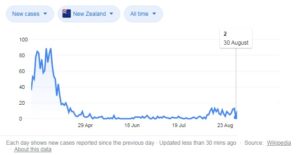 What else went into New Zealand’s pandemic response—and what could serve as guidance for other countries?
What else went into New Zealand’s pandemic response—and what could serve as guidance for other countries?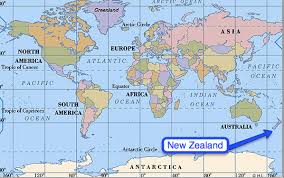
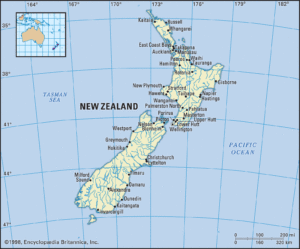

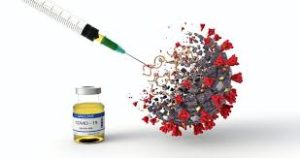 Is it worth it to “hang in there”? This is a question for us in the Caribbean as well. The world is enduring the Coronavirus COVID-19 pandemic crisis; it is wreaking havoc on the world’s economic engines – $250 Billion a day in losses – and Public Health deliveries. The only hope is a vaccine, of which there are a number of them in development (Phase I – Test Tubes, Phase II – Lab Mice, Phase III – Human Trials).
Is it worth it to “hang in there”? This is a question for us in the Caribbean as well. The world is enduring the Coronavirus COVID-19 pandemic crisis; it is wreaking havoc on the world’s economic engines – $250 Billion a day in losses – and Public Health deliveries. The only hope is a vaccine, of which there are a number of them in development (Phase I – Test Tubes, Phase II – Lab Mice, Phase III – Human Trials).  Please note: You will not be a Guinea Pig; those were the rodent-like creatures that functioned as Lab Mice. Also, you are not a part of the Human Trials. So at the point that the vaccine offer is made to you, many iterations of Quality Assurance would have already been executed.
Please note: You will not be a Guinea Pig; those were the rodent-like creatures that functioned as Lab Mice. Also, you are not a part of the Human Trials. So at the point that the vaccine offer is made to you, many iterations of Quality Assurance would have already been executed.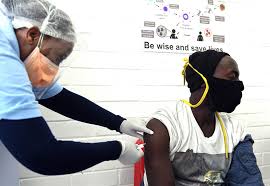 A big area of consideration must be past history:
A big area of consideration must be past history: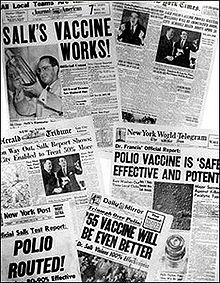
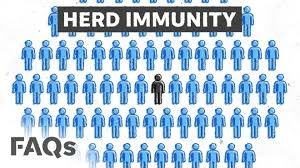


 We have no other choice but to contend with these challenges that come with participating in a vaccine program.
We have no other choice but to contend with these challenges that come with participating in a vaccine program. To be, or not to be, that is the question:
To be, or not to be, that is the question: When the going gets tough, the tough gets going – Old Adage
When the going gets tough, the tough gets going – Old Adage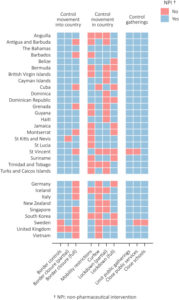

 My thimble runneth over! – Derisive Pun based on the Biblical expression “My cup runneth over”.
My thimble runneth over! – Derisive Pun based on the Biblical expression “My cup runneth over”. For many the answer can only be: My thimble runneth over!
For many the answer can only be: My thimble runneth over! NASSAU, BAHAMAS — Prime Minister Dr Hubert Minnis yesterday revealed the government is supporting the National Food Distribution Task Force with $1 million per week to assist more than 110,000 people.
NASSAU, BAHAMAS — Prime Minister Dr Hubert Minnis yesterday revealed the government is supporting the National Food Distribution Task Force with $1 million per week to assist more than 110,000 people.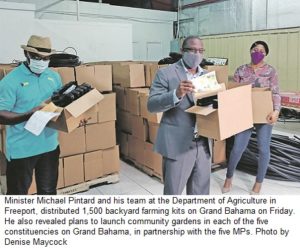 AGRICULTURE and Marine Resources Minister Michael Pintard relaunched the Backyard Farming Programme on Friday, distributing 1,500 backyard kits here on Grand Bahama.
AGRICULTURE and Marine Resources Minister Michael Pintard relaunched the Backyard Farming Programme on Friday, distributing 1,500 backyard kits here on Grand Bahama.